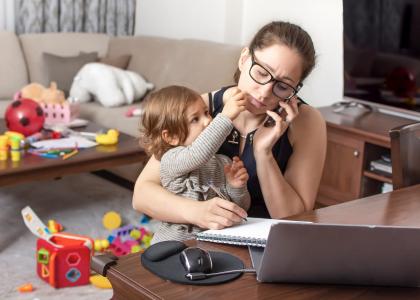Could Covid-19 be a disaster for pay equality?

With huge publicity going to infection rates, the tragic number of deaths, the challenges for the NHS, and impact on the economy, it can be easy to forget or overlook that Covid-19 is having a disastrous effect on careers and working lives.
75 percent of UK graduates believe that the Covid-19 outbreak will impact their future career prospects, and whilst the complete picture is still uncertain, there can be no doubt employment rates, pay growth, and career development are all likely to be issues after Covid-19.
However, it is interesting and worrying to note that the Covid-19 crisis appears to be more likely to negatively affect the working lives of women rather than men. It seems that through a combination of factors, women are more likely to find their roles furloughed, their hours cut, and their careers put on hold. The upshot is that this could be an absolutely disastrous time for pay equality, and the gender pay gap could begin to widen once again.
But even before the Covid-19 crisis really took hold, there had been signs that this might be something of a challenging year for those fighting for pay equality.
Key legal battles being lost
2020 has already been challenging for investment in pay equality and narrowing the gender pay gap. After a hard-fought legal battle, the US Women’s National Soccer Team suffered a real setback when a District Court Judge dismissed the main elements of their equal pay and gender discrimination lawsuit against the US Soccer Federation.
“A pyrrhic victory on unequal travel and hotel arrangements will do little to dampen the disappointment,” says Ian Felice, Partner at legal firm Hassans “those who eagerly anticipated a showdown on the much wider issue of the true value of female sport and its participants, may have to wait for another”.
With this, and other landmark legal cases being lost, equal pay advocates will find some of the statistics being revealed about how Covid-19 is affecting the workforce to only be further bad news.
Coronavirus to widen gender gaps
A recent study published by researchers at the London School of Economics’ Centre for Economic Performance found that the Covid-19 crisis was likely to have a significant and long-term effect on women in the workplace. It found that not only were women more likely to lose their jobs during the pandemic but women are more likely to work in sectors that are adversely affected by the pandemic.
However, it was not all bad news for working equality. Study author Professor Hupkau said that “previous studies have shown that women value flexible working and the ability to work from home, and if these options remain as the economy reopens, that could boost parents’ ability to combine work and family commitments”.
This could worsen the pay gap
As we are still in the early days of understanding the overall effect of Covid-19 on society as a whole, experts are still formulating opinions as they look at data. However, there are already signs that it could be a problem for the gender pay gap; coronavirus may have the effect of widening even further.
A study in Germany revealed that more women are cutting their hours to look after children due to the closure of schools and nurseries. Specifically, in households with a child under the age of 14, 27% of women were reducing their hours, compared to just 14% of men.
Other priorities
The Covid-19 has had an additional knock-on effect on the gender pay gap, as the government has chosen to suspend mandatory reports on the gender pay gap for businesses this year. It seems that the government here is suggested that under the unprecedented circumstances that businesses find themselves, there must simply be other priorities.
If the government and businesses as a whole, believe that the pandemic has created a situation in which the gender pay gap should not be scrutinised, for the time being, it is simply creating the situation that means the pay gap can increase without any recourse.
Final thoughts
2020 is likely to be a difficult year for the gender pay gap and pay equality - however, as many women are working in key roles during the pandemic it may be that this greater recognition will lead to better circumstances and an easier ride to pay equality in the future.

